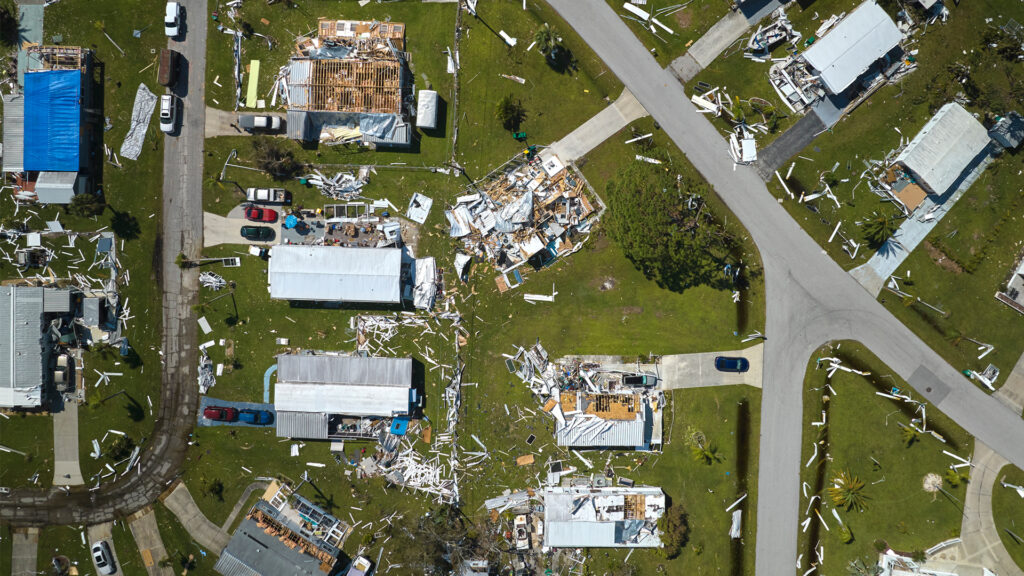By Jim Verhulst, Tampa Bay Times
Getting angry about property insurance has grown into a state pastime, but allow me to pile on. Let’s start by talking about surcharges, specifically, “recoupment.” It’s a fancy word that often means you’re covering someone else’s costs.
My new insurance bill itemizes three of them:
$82.16 to cover claims that United Property & Casualty Insurance Co. (not my insurance company) couldn’t pay when it went insolvent last year. The Florida Insurance Guaranty Association stepped in and approved an emergency assessment to make up the difference. (This would cover my internet bill for two months.)
$57.51 from an earlier Florida Insurance Guaranty Association assessment to cover other shortfalls; there were six insolvencies in 2022. (This equals nearly half of my typical water bill.)
$154.10 as a “recoupment” for the Florida Hurricane Catastrophe Fund, a sort of state pool of insurance for insurers, which, as my bill says, “provides funds to pay FHCF obligations resulting from previous hurricane seasons.” (This would go a long way toward paying my Duke Energy bill.)
Add them all up, and you get $293.77. The year before, it was even worse — $366.70. That’s money I would like to have in my pocket.

Mind you, none of this is my actual premium, which went up a ton this year. I get it. Insurance is expensive because risk is high and growing in Florida. I have no complaints with my insurance company. However, I do have complaints with a system that costs me nearly $300 before I even start paying my own bill.
If my house were insured only for normal perils like fire, theft and the like, I would owe a perfectly average U.S. insurance premium. You would, too. But my hurricane premium is more than five times higher than the normal perils part of my premium — even after thousands of dollars in discounts for hardening my home. That’s the killer.
Insurance companies are very good at calculating mundane risks. They know how many house fires and burglaries to expect in a year, and they also know that not every home in Tampa Bay is going to catch fire or be burglarized. It’s the magic of actuarial tables. Insurers build a model based on averages to figure out how much they will likely have to pay out in a year in claims. They factor in operating costs and profit, and then plan premiums accordingly.
Hurricanes are different. How do you cost out a one-in-500-year storm? A Category 3 that blows up into a Category 5 overnight? As we all know, a single hurricane can destroy billions of dollars’ worth of homes. That’s a scale that some insurance companies aren’t equipped to handle. In a quiet year, an insurance company and its officers can make piles of cash, charging for hurricanes that never came. In a bad year, an undercapitalized insurance company can go insolvent and leave the rest of us holding the empty bag.
The problem is not that complex. At its heart, our current system just doesn’t work well enough. Ask any homeowner afraid to open her renewal letter and peek at the premium. It’s going to get worse. For one, we’re still building on the coasts, literally in harm’s way. Second, climate change and rising seas are making our coasts more vulnerable and are possibly making hurricanes more ferocious.
Insurance companies know all this. They’re not going to take a big risk without a big reward. This can’t be laid off solely as a problem of fraud, abuse and frivolous lawsuits. We live on a big spit of sand in hurricane alley. A Category 3, 4 or 5 can hit us from every which way but Georgia — and even that isn’t out of the question. In a recent column, former state Sen. Jeff Brandes, who has studied the issue, wrote that “global investors and reinsurers, who ultimately shoulder most of Florida’s storm risk, know the stakes. Florida represents 25% of their worldwide insured catastrophe risk and is the planet’s ‘peak zone’ for such losses, alongside Japan.” Translation: If you want coverage against Florida hurricanes, it’s going to cost.
Think about the conundrum that is Citizens Property Insurance Corp., the state-run insurer of last resort. At least that was the original idea; Citizens would offer insurance to those who couldn’t buy it in the private marketplace. But now, you can stay in Citizens if private insurers’ premiums are 20% more expensive for similar coverage. Being allowed to remain with a state-run insurance company just because it’s cheaper doesn’t smack of “insurer of last resort.” Citizens shrank its rolls by 223,000 last year, but it still covers 1.22 million policies. Really want to depopulate Citizens, as state lawmakers contend? Force policyholders into the private market if an insurer simply matches Citizens’ premiums. Otherwise, is it really the “insurer of last resort”? Or is it that oh-so-scary word — a kind of socialism?
But you know what? Homeowners would hate the idea because they prefer the price and trust Citizens. Too many untested insurers have gone under, leaving homeowners — and the state — in a financial jam. Oh, and some years, even those of us who have private insurance have had to pay into a Citizens kitty. Another “recoupment.” (To be fair, Citizens reported last month that it now “has ample reserves and the ability to acquire reinsurance to cover a 1-in-100-year storm without having to levy assessments on non-Citizens policyholders.”)
So what to do? The short answer is, something different than what we’re doing now. State “reforms,” like making it harder to sue insurance companies, do nothing to change how much damage a future hurricane could wreak in Florida as the climate changes, the seas rise and building on the vulnerable coast continues.
More transparency would be a start. If insurance companies want state support, they should open their books to regulators. In a capitalist society, making money is the whole idea, and reasonable return on the dollar is nothing to be ashamed of or hidden from view. But it’s bad business to gouge premium payers in good years, then cut and run when the bill comes due in tough ones.
The hard fact is that the marketplace hasn’t solved the windstorm problem at a price that enough people can afford. If the state has to be involved somehow, maybe there’s a better way. There are ideas out there that lack traction so far. For one, state Rep. Spencer Roach, a Republican who lost his home to Hurricane Ian, has filed a bill (HB 1213) that would convert Citizens from an all-perils insurer to a state entity that offers just windstorm coverage. This change would allow private insurers to limit themselves to non-windstorm coverage like fires and theft and compete for customers without fear of a hurricane blowing them into insolvency.

Right now, when Florida goes years without a big hurricane — like between Wilma in 2005 and Irma in 2017 — those huge windstorm premiums are a one-way pipeline of dollars flowing from homeowners’ wallets to insurance companies’ bottom lines. Homeowners get nothing back, nothing saved for a stormy day. But imagine instead if the state insured against windstorm risk and let the marketplace handle other insurance. In quiet years, windstorm premiums could build up a large reserve instead of lining insurance companies’ pockets. In a bad year — and there will be bad years — that reserve would be drawn down. It still wouldn’t be cheap, but the costs could be less (remember, no profit motive) and should stabilize over time. The state has vast resources, and a year’s worth of windstorm premiums would be a consequential number.
Could it work? We don’t know yet. But let fair-minded experts at least game it out, instead of rejecting the idea out of hand.
Roach’s concept echoes one proposed 16 years ago in our opinion pages by a group of St. Petersburg businesspeople. I edited the essay where they recounted coming up with a plan to pour every windstorm premium dollar “into a huge pool of money to cover only hurricane winds and let insurance companies compete to insure the routine fires and burglaries.” Their methodical calculations worked out how a nascent Florida Reinsurance Corporation would have become self-sustaining within a decade. In other words, by their reckoning, a major problem might have been solved six years ago. “It’s a business solution. It’s not a political solution,” one of them said at the time. It went nowhere in Tallahassee, a place filled with politicians.
So we’re stuck with our current system of “recoupment“ and the like, where we’re paying someone else’s bills from last year with our own money this year when we should instead be saving up for the disasters we might face next year. I don’t mind paying into a kitty if we all share and share alike. But that’s not how this current system works. I’m guessing you don’t want to cover my internet, water or electric bill. That’s on me, as it should be. Too bad our insurance industry isn’t like that. It’s time to try something different, and the Legislature is in session. The ball’s in their court. Who wants to play?
Jim Verhulst is deputy editor of editorials for the Tampa Bay Times. This opinion piece was originally published by the Tampa Bay Times, which is a media partner of The Invading Sea.
If you are interested in submitting an opinion piece to The Invading Sea, email Editor Nathan Crabbe at ncrabbe@fau.edu. Sign up for The Invading Sea newsletter by visiting here.



